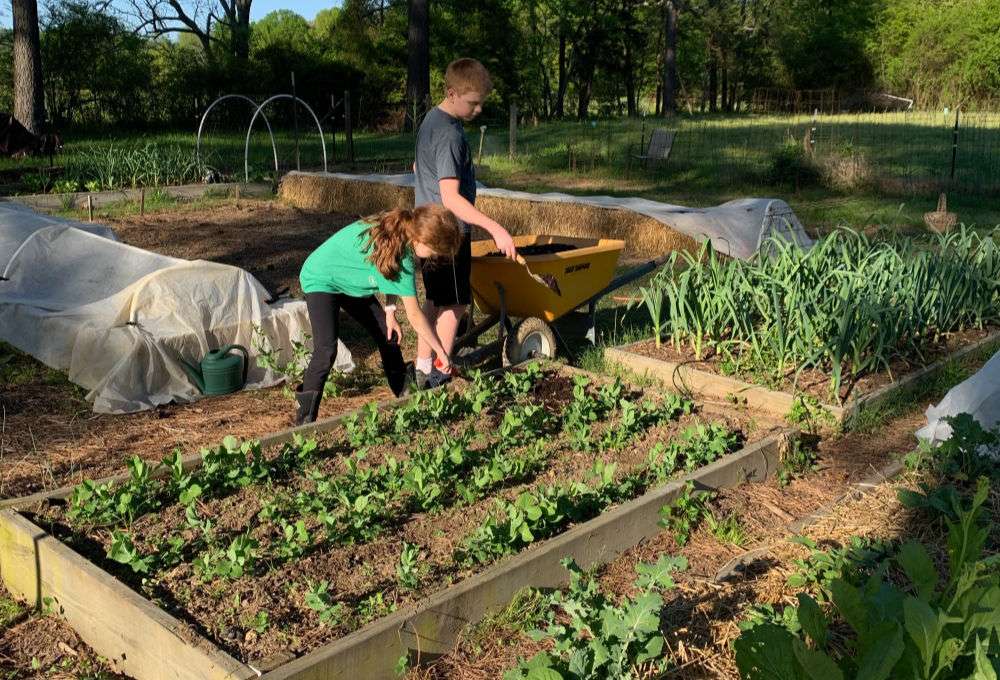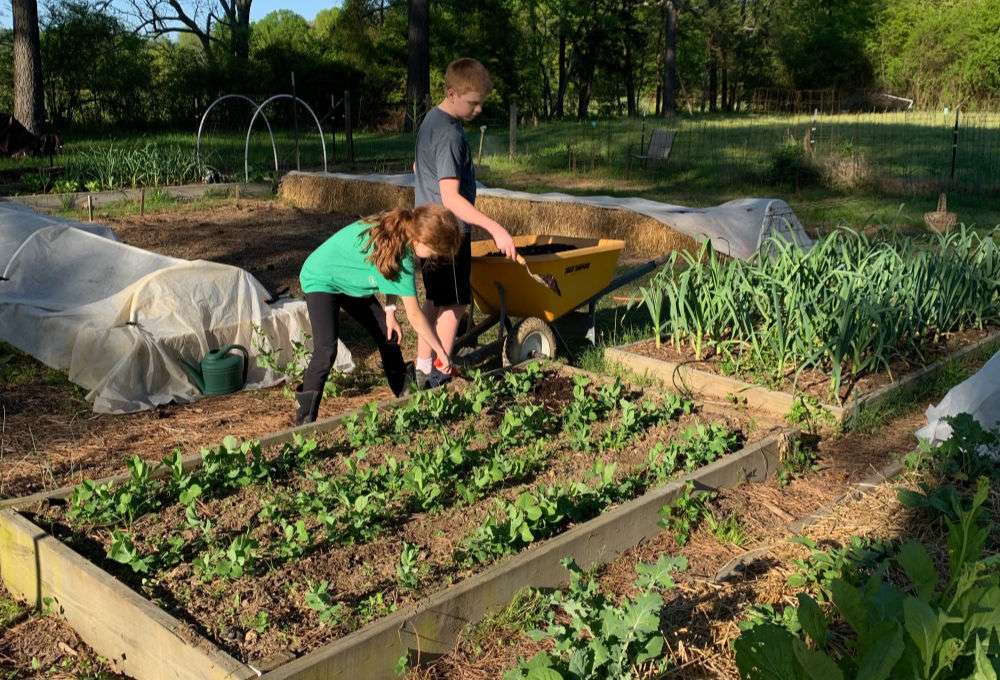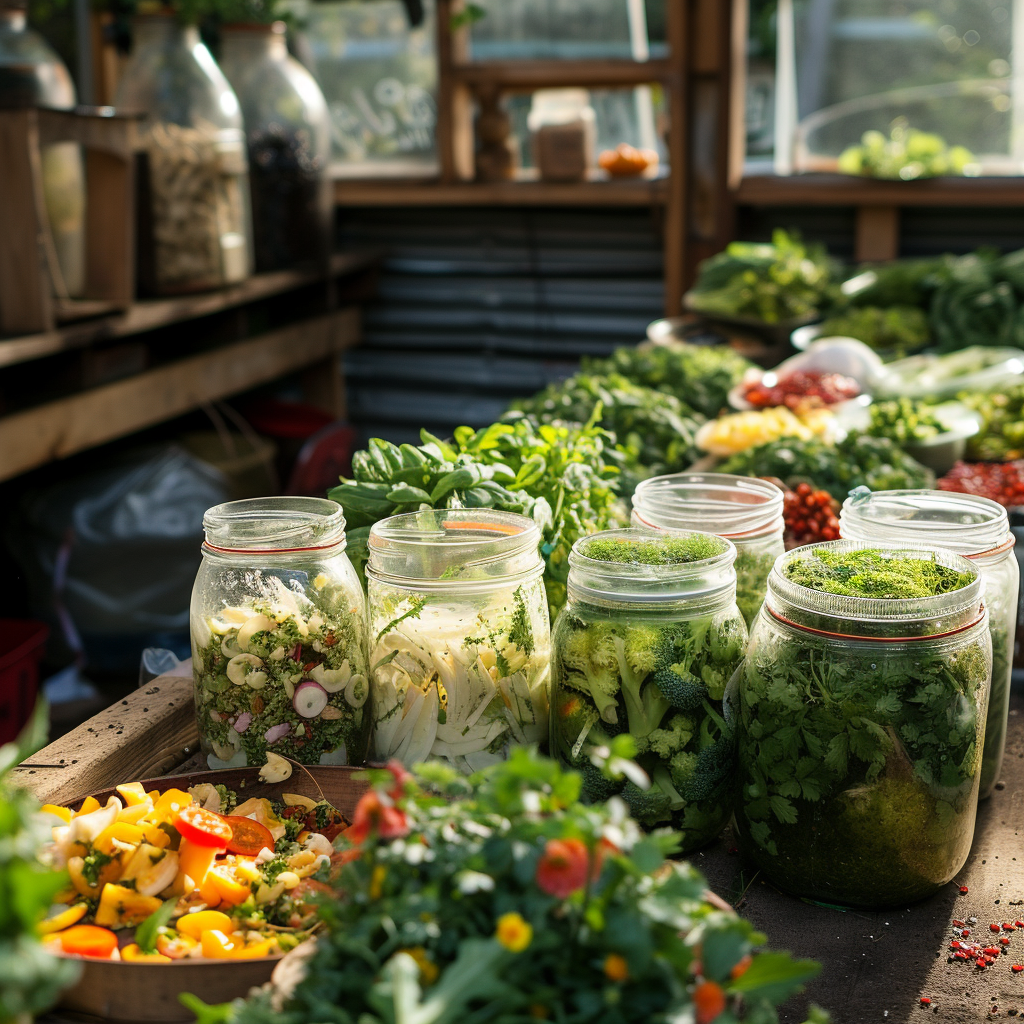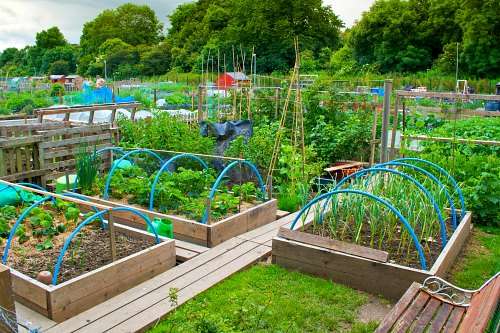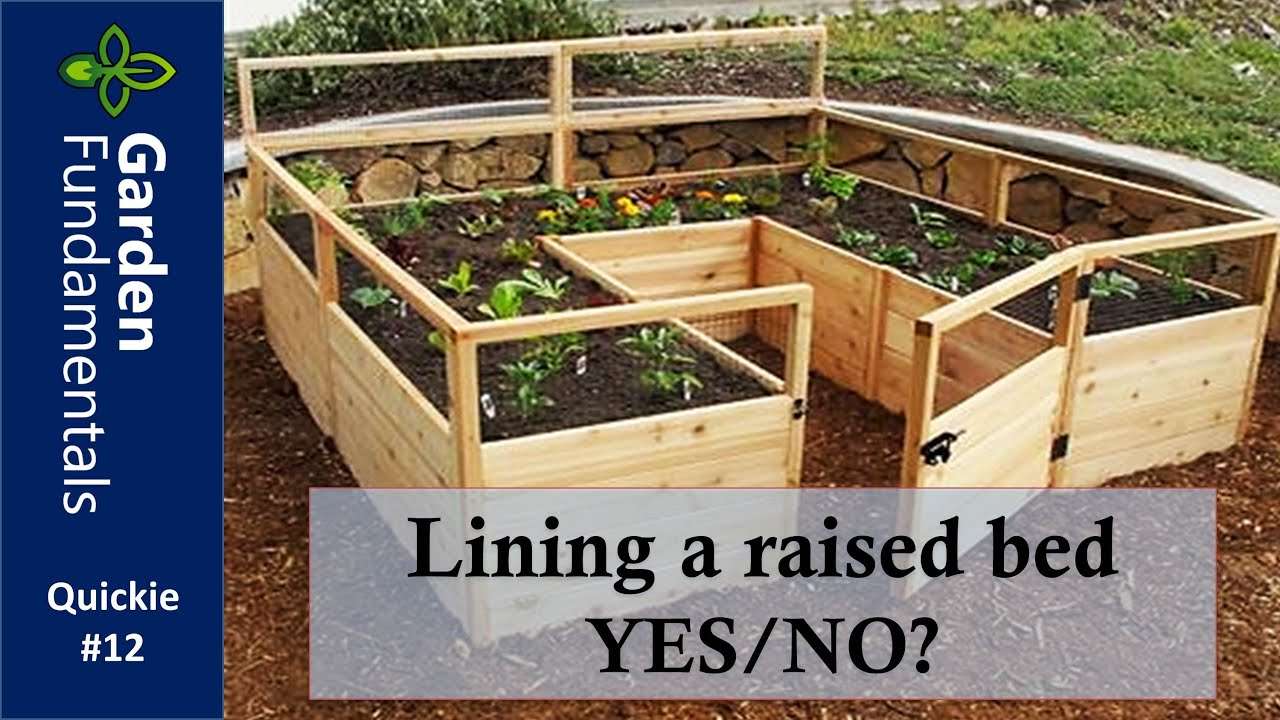In the world of vegetable gardening, mulching is your secret weapon. Not only does it enhance the performance of your plants, but it also increases your overall yield. However, not all mulches are created equal. Organic options like grass, hay, straw, and wood chips are ideal for vegetable gardens, decomposing quickly and adding valuable nutrients to the soil. In contrast, inorganic mulches, such as plastic or decorative pebbles, serve the purpose of weed suppression and aesthetics. Each type of mulch has its benefits and considerations, and the choice ultimately depends on the specific needs of your garden. Whether you’re looking to retain water, inhibit weed growth, or enrich the soil, mulching plays a vital role in the success of your vegetable garden.
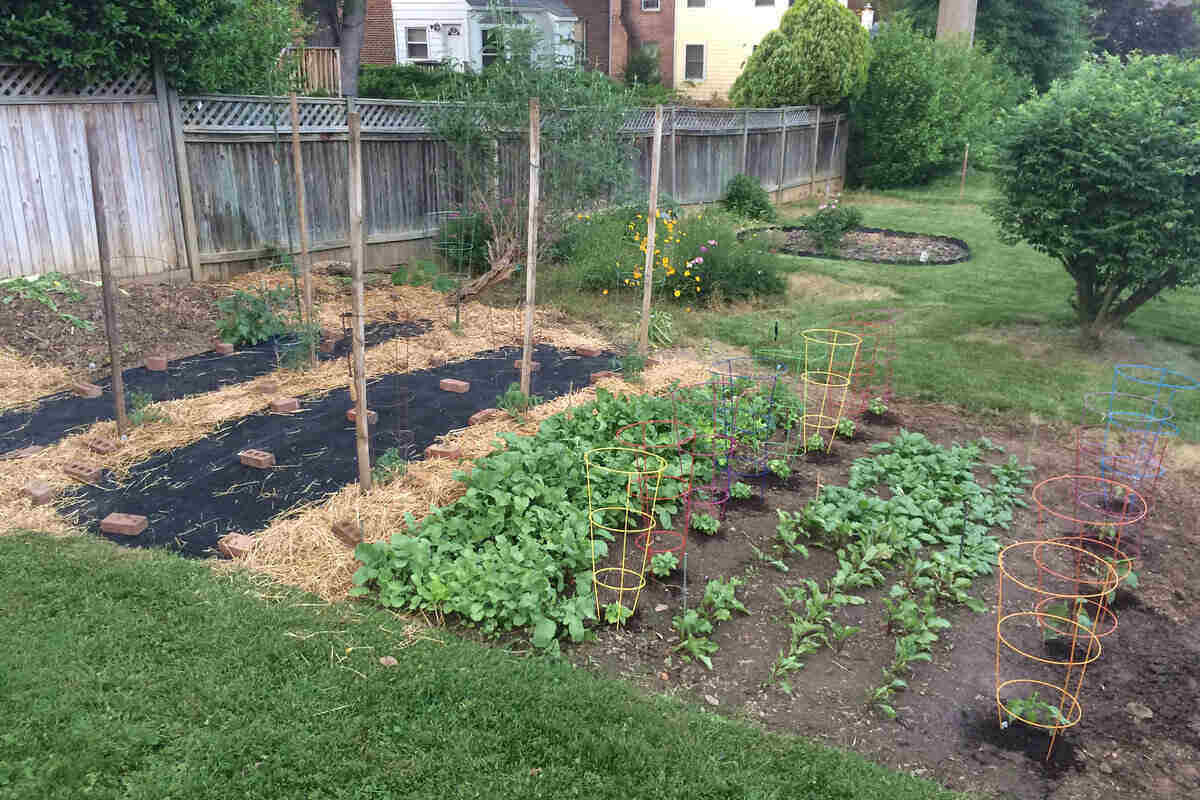
Organic Mulches
Organic mulches are a great choice for vegetable gardens because they decompose quickly and provide numerous benefits to the plants. Here are some popular options for organic mulches:
Grass Clippings
Grass clippings are a common and easily accessible mulch option for vegetable gardens. They not only retain water and keep the soil moist, but they also contain valuable nutrients that can nourish the plants. However, it’s important to note that grass clippings may not effectively suppress weeds, so additional weed control methods may be necessary.
Hay Mulch
Using hay as mulch in your vegetable garden is a great way to add diversity to the plant materials. It is made up of various plant materials, such as grasses and legumes, which can provide additional nutrients to the soil as they decompose. One of the advantages of using hay mulch is that it eliminates the need for digging, as you can simply lay it on top of the soil and let it do its magic.
Straw Mulch
Straw is another readily available mulch option for vegetable gardens. Unlike hay, which includes various plant materials, straw is made up solely of the dry stalks of grains like wheat, barley, or oats. One of the advantages of using straw as mulch is that it can be applied in thick layers, providing effective weed suppression. Additionally, straw decomposes relatively slowly, meaning it will last longer as a mulch before needing replacement.
Wood Chip Mulch
Wood chips are a popular choice for mulching in all types of gardens, including vegetable gardens. They not only suppress weeds effectively, but they also provide a natural aesthetic appeal to your garden beds. Wood chips take longer to decompose compared to other organic mulches, which means they will last longer and require less frequent replacement. As they break down, wood chips release nutrients into the soil, providing long-term benefits to your plants.
Cardboard and Newspaper Mulch
If you’re looking for organic options to suppress weeds in your vegetable garden, cardboard and newspaper can be effective mulches. By layering these materials on the soil, you can prevent weed growth by blocking sunlight. Cardboard and newspaper also have the added advantage of being biodegradable, meaning they will break down over time and become part of the soil structure.
Compost Mulch
Compost is often referred to as “black gold” in gardening, and for good reason. Using compost as mulch in your vegetable garden not only improves the soil’s nutrient content, but it also attracts beneficial worms that help aerate and break down organic matter. However, it’s important to note that compost may not provide the same level of weed suppression as other mulch options. Therefore, it’s recommended to use additional weed control methods alongside compost mulch.
Pine Needles Mulch
Pine needles can be a useful mulch option for vegetable gardens, especially if you’re looking to temporarily increase the acidity of the soil. Pine needles make the soil more acidic as they decompose, which can be beneficial for certain plants that prefer acidic conditions. Additionally, pine needles retain water well, helping to keep the soil moist and preventing excessive evaporation.
Leaf Mulch
Leaf mulch is another organic mulch that decomposes relatively fast and retains water effectively. If you have access to a large quantity of fallen leaves, you can collect them and shred them to create leaf mulch. This mulch provides nutrients to the soil as it breaks down and helps in weed suppression. Leaf mulch is especially beneficial for vegetable gardens because it adds organic matter to the soil, improving its overall structure and fertility.
Inorganic Mulches
In addition to organic mulches, there are also inorganic mulches that can be used in vegetable gardens. While they may not provide the same soil improvement benefits as organic mulches, they serve specific purposes such as weed suppression and aesthetics.
Plastic Mulch
Plastic mulch is a popular choice for weed suppression in vegetable gardens. It effectively blocks sunlight from reaching the soil, preventing weed growth. Plastic mulch is available in various colors, with black being the most common choice. The dark color absorbs heat, warming the soil and promoting the growth of heat-loving plants. However, it’s important to note that plastic mulch does not improve the soil’s nutrient content or provide any organic matter to the garden beds.
Decorative Pebbles
If aesthetics are a priority for your vegetable garden, decorative pebbles can be a great option for mulching. They come in various colors, shapes, and sizes, allowing you to create visually appealing garden beds. However, it’s important to note that decorative pebbles do not provide any soil improvement benefits and may not effectively suppress weeds. Therefore, additional weed control methods may be necessary if you choose to use decorative pebbles as mulch.
Benefits of Mulching in Vegetable Gardens
Mulching plays a crucial role in vegetable gardens, offering several benefits that can enhance plant performance and increase yield. Here are some key advantages of mulching in vegetable gardens:
Improved Plant Performance
By using mulch in your vegetable garden, you create an optimal environment for plant growth. Mulch helps regulate soil temperature, keeping it cooler in hot weather and warmer in cold weather. This stability is essential for the healthy development of plant roots and encourages overall plant vigor. Additionally, mulch acts as a barrier, reducing soil compaction caused by heavy rain and allowing water to penetrate the soil more effectively.
Increased Yield
One of the primary goals of any vegetable garden is to maximize yield. Mulching can contribute to increased yields by providing a favorable environment for plant growth. By retaining moisture in the soil, mulch ensures that plants have a steady water supply, even during dry periods. Mulch also helps control weeds, reducing competition for water, nutrients, and sunlight. As a result, your vegetable plants can focus their energy on growth and production, leading to higher yields.
Grass Clippings Mulch
Grass clippings are a popular option for mulching in vegetable gardens, primarily due to their accessibility and organic nature. Here are some benefits of using grass clippings as mulch:
Water Retention
One of the significant advantages of using grass clippings as mulch is their ability to retain water in the soil. Grass clippings create a protective layer on top of the soil, preventing water from evaporating quickly. This helps to keep the soil consistently moist, reducing the frequency of watering required for your vegetable plants. Adequate moisture levels are crucial for plant growth and can contribute to healthier, more productive plants.
Nutrient Content
Grass clippings are rich in nutrients, making them an excellent natural fertilizer for your vegetable garden. As the clippings decompose, they release nitrogen, potassium, and phosphorus into the soil, promoting healthy plant growth. These essential nutrients are vital for the development of strong stems, vibrant leaves, and robust root systems. Using grass clippings as mulch can provide a continuous supply of nutrients to your plants throughout the growing season.
Weed Suppression
While grass clippings offer many benefits, they may not effectively suppress weeds on their own. If your vegetable garden has existing weed problems or if you anticipate significant weed growth, additional weed control methods may be necessary. However, using grass clippings as a mulch layer can still help reduce weed growth by blocking sunlight and preventing weed seeds from germinating. Regularly adding fresh grass clippings to your mulch layer can help maintain its weed-suppressing properties.
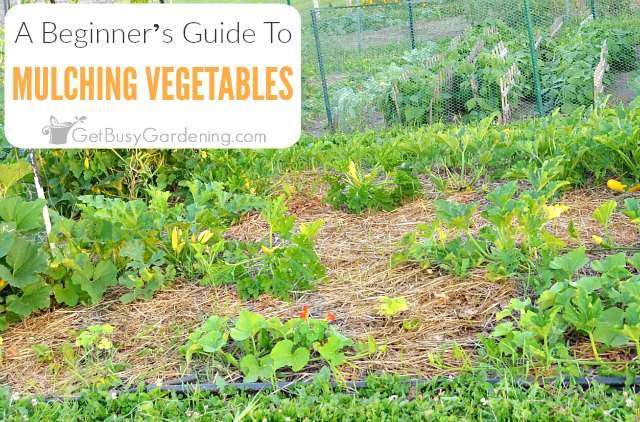
Hay Mulch
Hay can be an excellent mulch option for vegetable gardens, especially if you’re looking to add diversity to the plant materials in your garden beds. Here are some benefits of using hay as mulch:
Diverse Plant Materials
Hay is made up of various plant materials, including grasses, legumes, and other crops. As these materials decompose, they provide a wide range of nutrients to the soil, enriching it over time. The diverse composition of hay mulch can help create a favorable environment for beneficial microorganisms, which play a vital role in breaking down organic matter and releasing nutrients. By using hay as mulch, you can introduce a variety of plant materials into your vegetable garden, enhancing its overall fertility.
No Digging Required
An advantage of using hay as mulch in your vegetable garden is that it eliminates the need for extensive digging. You can simply lay the hay on top of the soil and let it do its job. This saves you time and effort, allowing you to focus on other essential gardening tasks. Additionally, as the hay mulch breaks down over time, it will gradually mix with the underlying soil, improving its overall structure and fertility.
Straw Mulch
Straw is a readily available and widely used mulch option for vegetable gardens. Here are some benefits of using straw as mulch:
Readily Available
Straw is abundantly available in many agricultural areas, making it an easily accessible mulch option. You can often find straw at local farms, garden centers, or through online suppliers. Its availability makes straw a convenient choice for mulching large vegetable gardens or areas with high mulch requirements. By using straw as mulch, you can ensure a consistent supply of organic material for your garden beds.
Effective Mulching in Thick Layers
One of the advantages of straw mulch is its ability to be applied in thick layers. Thicker mulch layers offer better weed suppression by blocking sunlight and preventing weed seeds from germinating. By applying straw mulch in a thickness of several inches, you can significantly reduce weed growth in your vegetable garden. Additionally, the thick layer of straw helps retain moisture in the soil, reducing the need for frequent watering.
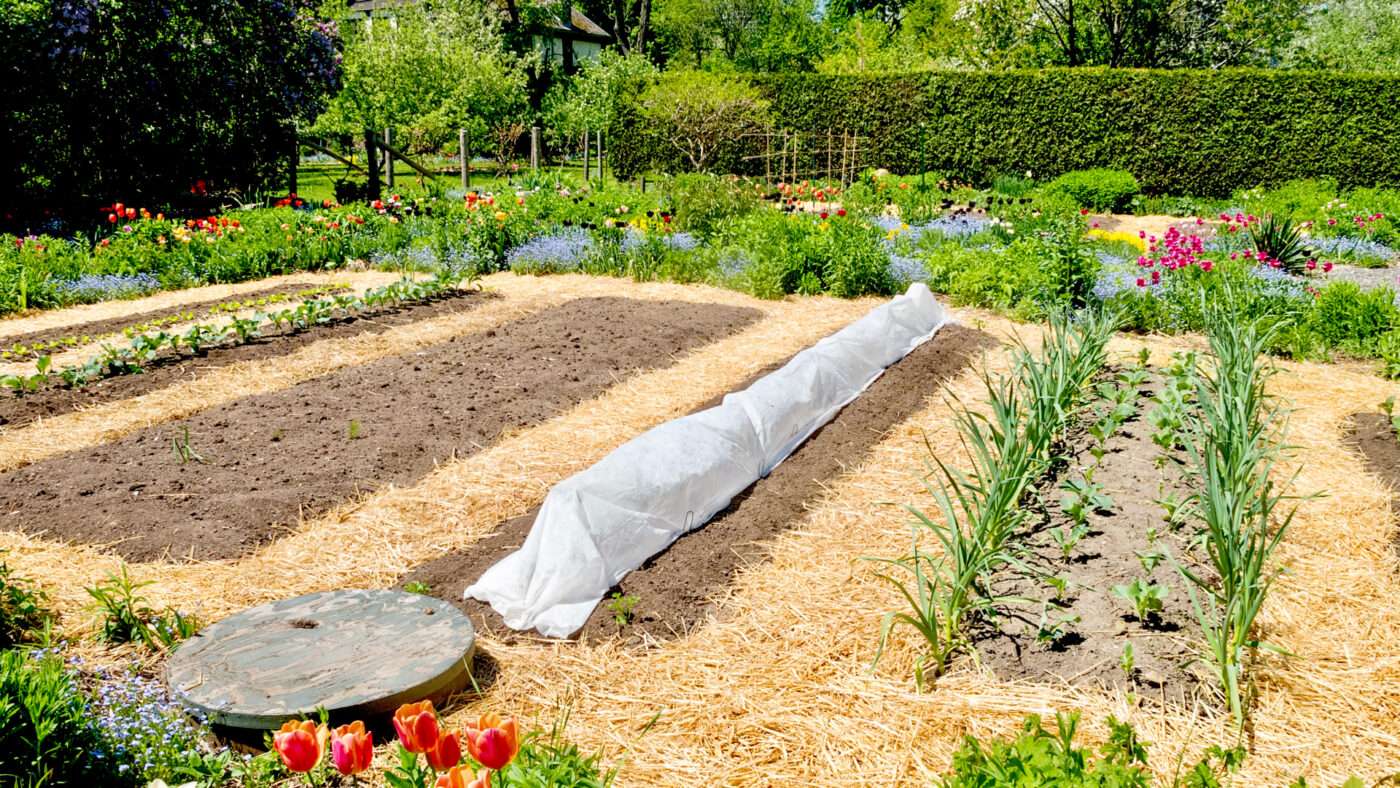
Wood Chip Mulch
Wood chips are a versatile and long-lasting mulch option that can benefit your vegetable garden in several ways. Here are some benefits of using wood chip mulch:
Weed Suppression
Wood chips provide effective weed suppression by creating a physical barrier between weed seeds and the soil surface. The thick layer of wood chips blocks sunlight, preventing weed seeds from germinating and growing. This can significantly reduce the time and effort required for weed control in your vegetable garden. Additionally, wood chip mulch helps conserve moisture by reducing evaporation, creating a more favorable environment for your plants.
Slow Decomposition
Wood chips take longer to decompose compared to other organic mulches, providing longer-lasting benefits to your vegetable garden. The slow decomposition rate means that wood chip mulch will maintain its weed-suppressing properties and moisture retention capabilities for an extended period. This can be particularly advantageous for perennial crops or long-growing vegetables that require consistent care throughout the season.
Nutrient Release
As wood chips decompose, they slowly release nutrients into the soil, enriching it over time. This gradual nutrient release benefits your vegetable plants by providing a steady supply of essential elements. The nutrients released by wood chip mulch, such as nitrogen, phosphorus, and potassium, can support healthy plant growth and contribute to higher yields. However, it’s important to note that the nutrient release rate from wood chips is relatively slow, so additional fertilization may be necessary for certain crops.
Cardboard and Newspaper Mulch
If you’re looking for organic options to suppress weeds in your vegetable garden, cardboard and newspaper can be effective mulches. Here’s why they are beneficial:
Organic Options for Weed Suppression
Cardboard and newspaper can be excellent choices for organic weed suppression in your vegetable garden. By layering these materials on the soil, you create a physical barrier that prevents weed seeds from germinating and growing. Cardboard and newspaper block sunlight, keeping the weeds in check and reducing the need for manual weeding. Additionally, these organic mulches will eventually break down and become part of the soil, improving its structure and fertility.
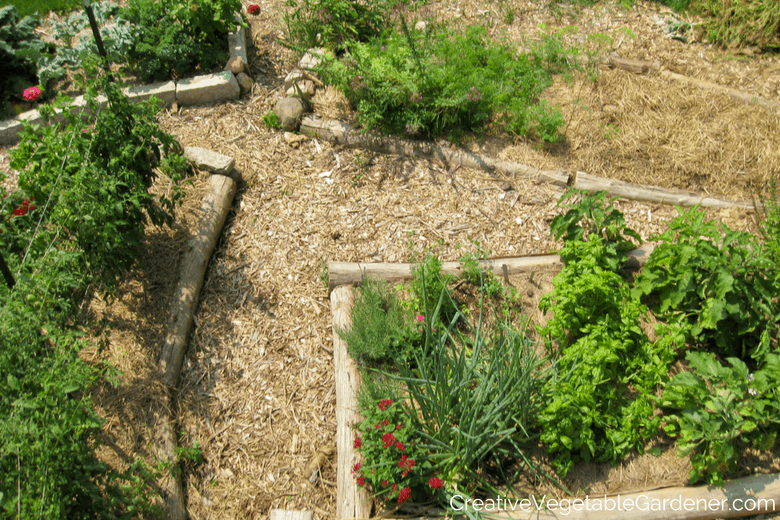
Compost Mulch
Compost is a valuable resource in gardening, and using it as mulch in your vegetable garden can bring numerous benefits. Here’s why compost mulch is beneficial:
Soil Nutrient Improvement
Compost is known for its exceptional nutrient content, making it an excellent choice for improving the fertility of your vegetable garden soil. By applying compost as mulch, you provide a continuous supply of nutrients to your plants throughout the growing season. The rich organic matter in compost helps improve the soil structure, enhances water retention, and promotes the growth of beneficial microorganisms. These soil improvements can have a significant impact on the overall health and productivity of your vegetable plants.
Attracts Beneficial Worms
Worms play a crucial role in maintaining healthy soil, and compost mulch can attract these beneficial creatures to your vegetable garden. Worms help break down organic matter, aerate the soil, and release nutrients through their castings. Their activities improve soil fertility and create a more favorable environment for plant roots. By using compost as mulch, you create an inviting habitat for worms, which can contribute to a thriving ecosystem in your vegetable garden.
Limited Weed Suppression
While compost has numerous benefits, it may not offer the same level of weed suppression as other mulch options. Unlike materials that create a physical barrier, compost mulch tends to be more porous, allowing weed seeds to germinate and grow through it. Therefore, it’s advisable to use additional weed control methods, such as hand weeding or applying organic pre-emergent herbicides, in conjunction with compost mulch to keep weed growth in check.
Choosing the Right Mulch
When it comes to selecting the right mulch for your vegetable garden, it’s essential to consider the specific needs of your plants. Here are some factors to consider when choosing the right mulch:
Specific Needs of Vegetable Garden
Different vegetable plants have different requirements, and choosing the appropriate mulch can help meet those needs. For instance, heat-loving plants like tomatoes and peppers may benefit from plastic mulch, which warms the soil and promotes their growth. On the other hand, plants that prefer acidic soil, such as blueberries or potatoes, can benefit from pine needle mulch. Understanding the specific needs of your vegetable garden and the plants you’re growing will help you make an informed decision when selecting the right mulch.
